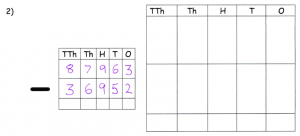Good morning Year 5!
🙂

Handwriting Practice

C. S. Lewis (1898 – 1963) was a Christian writer best known for the Narnia stories. He became a Christian after reading one of Chesterton‘s books and after many conversations with his friend J. R. R. Tolkien, (author of The Hobbit and The Lord of the Rings) who was Catholic. Together they were part of a writer’s club called the Inklings. For over 16 years they regularly met up, read each other their writings, and swapped comments and ideas. They encouraged each other a lot, so without Tolkien, we might never have had Lewis and without Lewis we might never have had Tolkien.

English
Running on Empty
Chapter 7 – Seventy-Five Times – Part 1
Download a worksheet here: Running on Empty – 7 – part 1
Vocabulary (have a go at these before you listen, then finish them properly after you listen)
- shove (v.) 2. squeal (v./n.) 3. appreciation (n.)
- revolting (adj.) 5. beam (v.) 6. hardly (adv.)
First, match up these definitions with the words above:
- only a very little
- a high-pitched cry
- to push
- disgusting
- to give a big, wide smile
- to show that you like something and are grateful for it
Next, complete these examples using the vocabulary words:
- The piglets ________ed as they ran around the barn.
- She’s so tired, she can ________ keep her eyes open.
- He ________ed as he collected his prize from the head teacher.
- That smells ____________! I think it’s gone off.
- They showed their ____________ by giving her a bunch of flowers.
- When people started _______ing in the line the security guards closed the gates.
Questions – Read them carefully before you listen.
- Read / listen to the first paragraph again. What does it tell you about AJ – What sort of person is he?
- How do you say ‘green’ in French?
- Describe in your own words the misunderstanding that happens in the supermarket.
- ‘I put my legs and arms in the air and do the insect wriggle. It seems the only thing I can do.’ Does this seem like AJ to you? Why do you think he does it?
Now read and listen to chapter 7 – part 1

Maths
Now try these:




5-a-day
Bronze / Silver / Gold / Platinum
Answers:
Bronze / Silver / Gold / Platinum
Theme
Migration
Click here for a worksheet for today and tomorrow: Migration – Emigration and Immigration

Last week we learnt a little about the Irish Potato Famine (1845-1949) which forced millions of Irish people to leave their country and emigrate to other countries.
There are some important words we need to learn to talk about this subject. The subject is migration. Migration (n.) is the movement of people from one country to another. The verb for leaving your country to go to another, is ’emigrate’.
How many Irish people emigrated from Ireland to Canada?
Emigration – Leaving
This map shows the number of people who emigrated from the UK in 2004. The numbers represent thousands, so the 58 for Spain means 58,000 people emigrated from the UK to Spain.

- Look at the title of this map. What do you notice? What’s the word for someone who leaves their country to live in a another country?
- The numbers on the map are in thousands, so 71,000 people emigrated from the UK to Australia in 2004.
- Use the sentence above to write 3 more sentences, writing the numbers in words. For example:
Six thousand people emigrated from the UK to Germany.
4. Do you think you might like to emigrate when you are older? Where would you emigrate to and why?
5. Why do you think people might emigrate from the UK to these countries?
![]()


